When purchasing a house using a VA loan, pre-approval becomes an essential and prudent step toward home ownership in this highly competitive real estate environment. In the journey of house hunting, a VA loan pre-approval precedes benefits that provide you with a deeper understanding and better a dealership than others.
But what is a VA loan pre-approval, and how does the process work? More importantly, what do you get out of it as a home buyer?
This article seeks to put a stopper in these queries by answering the most common questions people ask about mortgage pre-approval for VA loans. By deconstructing the complexities of this first assessment, we reveal the benefits it offers from which you can acquire knowledge that enables effective practice in real estate.

What Is A VA Loan Pre-approval?
A VA loan pre-approval is an initial evaluation of your VA loan pre-qualification, such as trustworthiness and funding capacity. It is a non-formal process by any VA-approved lender that estimates what loan amount you can be qualified for and the rate of interest that you might get.
In a pre-approved VA loan situation, the lender assesses your credit score, income assets, and debts to determine what is known as their maximum loan Amount. Another way you can view it is to see the pre-screening process for financing your monthly payments.
This initial evaluation is a significant part of the home-buying process because it gives you an understanding of your financial abilities. A VA loan pre-approval is not a mere number alone; it is basically an agreement between you and the lender to do an in-depth credit assessment on who exactly qualifies for this option.
Besides numbers, it provides a complete picture of your financial situation to ensure you are prepared for the responsibilities of owning a house. This proactive method helps you, as a potential buyer, find your maximum loan quantity and also prepares the ground for an easier transition in real estate.

How Is It Different from a Pre-qualification?
VA loan pre-approval and pre-qualification are initial steps in the mortgage process, but they differ in several ways.
- Pre-qualification is a quick and informal process that can be completed based on the borrower’s self-reported information. You can even do it online through a mortgage lender’s website. The lender will ask for some basic information about your source of income and debts and then offer an estimate of how much you can borrow.
- Pre-approval is a more formal and in-depth process that requires the lender to verify the borrower’s financial information. The lender will ask for the borrower’s credit report, review their income documentation, and verify their assets and debts. After this, they will issue a pre-approval letter that states the estimated loan amount, interest rate, and expiration date.
The distinction between pre-qualification and pre-approval carries noteworthy consequences for lenders and applicants alike. Pre-approval raises the level of confidence in the accuracy of the borrower’s financial information, whereas pre-qualification provides a quick estimate based on self-reported data.
In addition to providing lenders with well-informed information, the verification procedure gives buyers of real estate a better negotiation position in the cutthroat real estate market.
Prospective buyers have a concrete advantage when they present sellers with a pre-approval letter, which shows them that they have the resources to back their offer and are serious about the property.
This might expedite the home-buying process and raise the chance of a successful transaction, making it a critical element in a competitive market.

How Does It Benefit the Home Buyer?
Getting pre-approved for a VA loan can benefit the borrower/home buyer in several ways:
- Stronger Negotiating Position: A pre-approval letter shows sellers that you are a legitimate buyer with a genuine means of getting this property. This can help you in the VA loan approval process and gives you an advantage over others during negotiations.
- Determining Your Price Range: Pre-approval gives you a definite idea of how much you can reasonably borrow, enabling you to focus on houses that fit your budget. This also helps to speed up your quest and save time.
- Streamlined Mortgage Process: It is impossible to emphasize how much pre-approval contributes to the simplified mortgage procedure in addition to these advantages. The pre-approval speeds up the mortgage application process overall by “frontloading” necessary documentation and reviews, which helps to facilitate a quicker and more seamless closure.
To put it simply, having a VA loan pre-approval simplifies your search and speeds up the process of becoming a homeowner while also empowering you as a serious buyer in negotiations.

How Does It Fit into The Broader Home-buying Process?
VA loan pre-approval is one of the initial steps of a real estate VA loan application process that a borrower can take before buying a home. It helps pave the way for all the following steps, such as house hunting and making an offer.
Here’s how the process usually unfolds:
- Get pre-approved for a loan to determine your borrowing power.
- Find a real estate agent to help you find the right home.
- Make an offer on a home and negotiate with the seller.
- The lender orders an appraisal of the house to determine its value.
- The lender or underwriter might request additional information.
- Sign all of the finalized paperwork at closing.
- Receive the keys to your new home!
What Documents Are Needed For VA Loan Pre-approval?
The specific documents required for VA loan pre-approval and the VA loan underwriting process can vary depending on the lender. However, you’ll probably need to provide the following VA loan documents to get pre-approved for a VA loan:
- Certificate of Eligibility: This is an official document that the Department of Veterans Affairs (VA) issues. It serves as proof that a borrower meets the eligibility criteria to qualify for a VA home loan.
- Proof of Income: Recent pay stubs, W-2s, or tax returns
- Verification of Employment: A letter from your employer or a copy of your recent pay stubs
- Asset Verification: Bank statements, investment accounts, and other proof of assets
- Debt Verification: A list of your current debts, including credit cards, student loans, and car loans
To be eligible for a VA loan, you must submit the above-listed documentation along with a complete credit history study that includes your credit score. Additionally, the chosen property’s Purchase Agreement or Sales Contract, which specifies the purchase price, is crucial.
Lenders could ask about additional sources of income and need proof, such as profit and loss accounts for self-employed individuals. To ensure a seamless transaction, open contact with the lender is essential.
VA loans are available to veterans and their qualifying spouses; however, in order to fully benefit from this program, complete and accurate documentation is required. Pre-approval process efficiency is increased when required documents are provided promptly.
Your lender will provide you with a list of documents they need to complete the VA loan pre-approval process. You might also receive a request for additional documentation when your file moves into the underwriting stage.
Does Pre-approval Guarantee a Loan?
No, pre-approval is an estimate based on your existing financial situation; it does not guarantee loan acceptance. Although it doesn’t include a firm guarantee from the lender, it does indicate the maximum loan amount you could be eligible for. A thorough underwriting evaluation of the borrower and the property is required in order to obtain final approval.
This means a careful review of credit reports, bank records, and property information. The lender evaluates risk indicators prior to providing a final loan approval. Pre-approval is a helpful first step that advises consumers about possible loan limits; nevertheless, the final guarantee of a loan depends on the results of the lender’s thorough assessment during the underwriting procedure.
Will A VA Loan Pre-approval Affect My Credit Score?
Getting pre-approved for a VA loan can affect your credit score. That’s because the lender will need to pull a copy of your credit report in order to assess your creditworthiness. A credit pull is considered a “hard inquiry,” which can temporarily lower your credit score.
According to the credit reporting bureau Experian:
“While a hard inquiry will stay on your credit report for two years, it will usually only impact your credit for up to a year, and usually by less than five points.”
Furthermore, it’s important to note that multiple mortgage-related inquiries within a short time frame—typically around 14 to 45 days—related to rate shopping are often seen as a single inquiry by credit scoring models. In other words, the effect on your credit score can be even smaller if you’re actively looking for the most excellent VA loan offer.
Although there is a small initial credit score drop, the long-term advantages of a VA loan pre-approval exceed this disadvantage. It not only assists you in determining your financial capability and negotiating skillfully, but it also presents you as a serious and organized buyer in a cutthroat real estate market. The benefits of obtaining a pre-approval for a property become more apparent as the process moves along, making it easier and more assured.


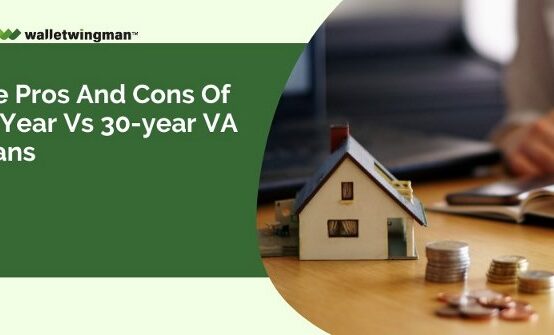 The Pros and Cons of 15-Year vs 30-year VA loans
The Pros and Cons of 15-Year vs 30-year VA loans 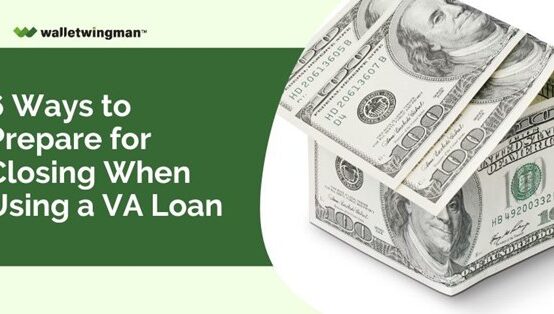 6 Ways to Prepare for Closing When Using a VA Loan
6 Ways to Prepare for Closing When Using a VA Loan 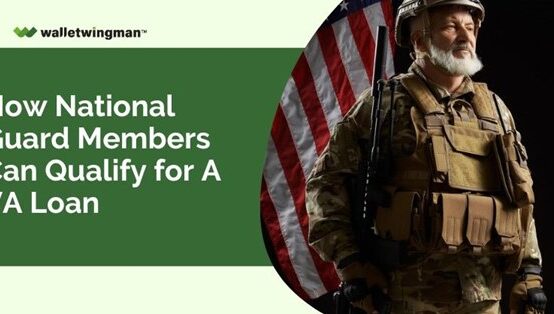 How National Guard Members Can Qualify for a VA Loan
How National Guard Members Can Qualify for a VA Loan 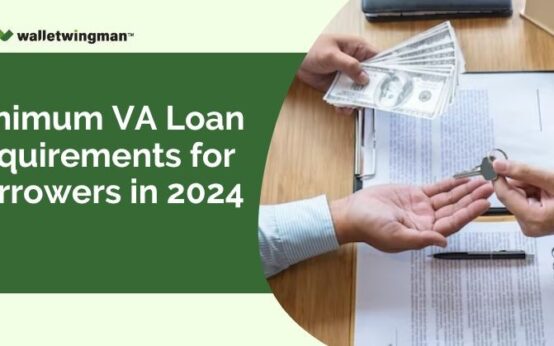 Minimum VA Loan Requirements for Borrowers in 2024
Minimum VA Loan Requirements for Borrowers in 2024 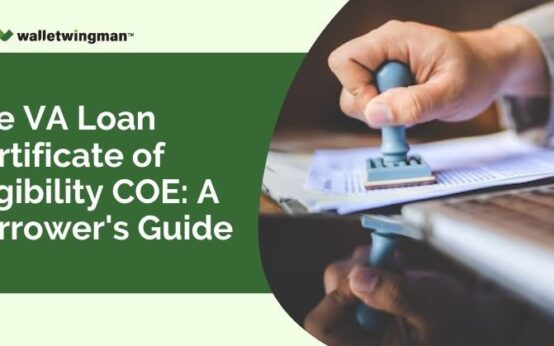 The VA Loan Certificate of Eligibility (COE): A Borrower’s Guide
The VA Loan Certificate of Eligibility (COE): A Borrower’s Guide 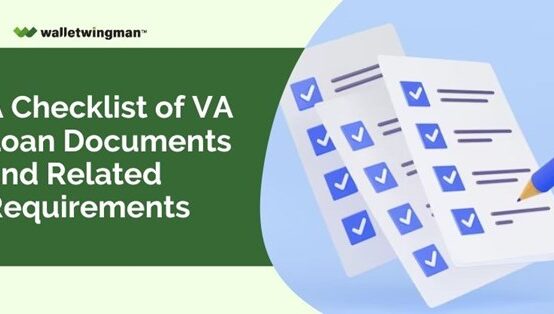 Complete VA Loan Requirements & Document Checklist for Veterans
Complete VA Loan Requirements & Document Checklist for Veterans 